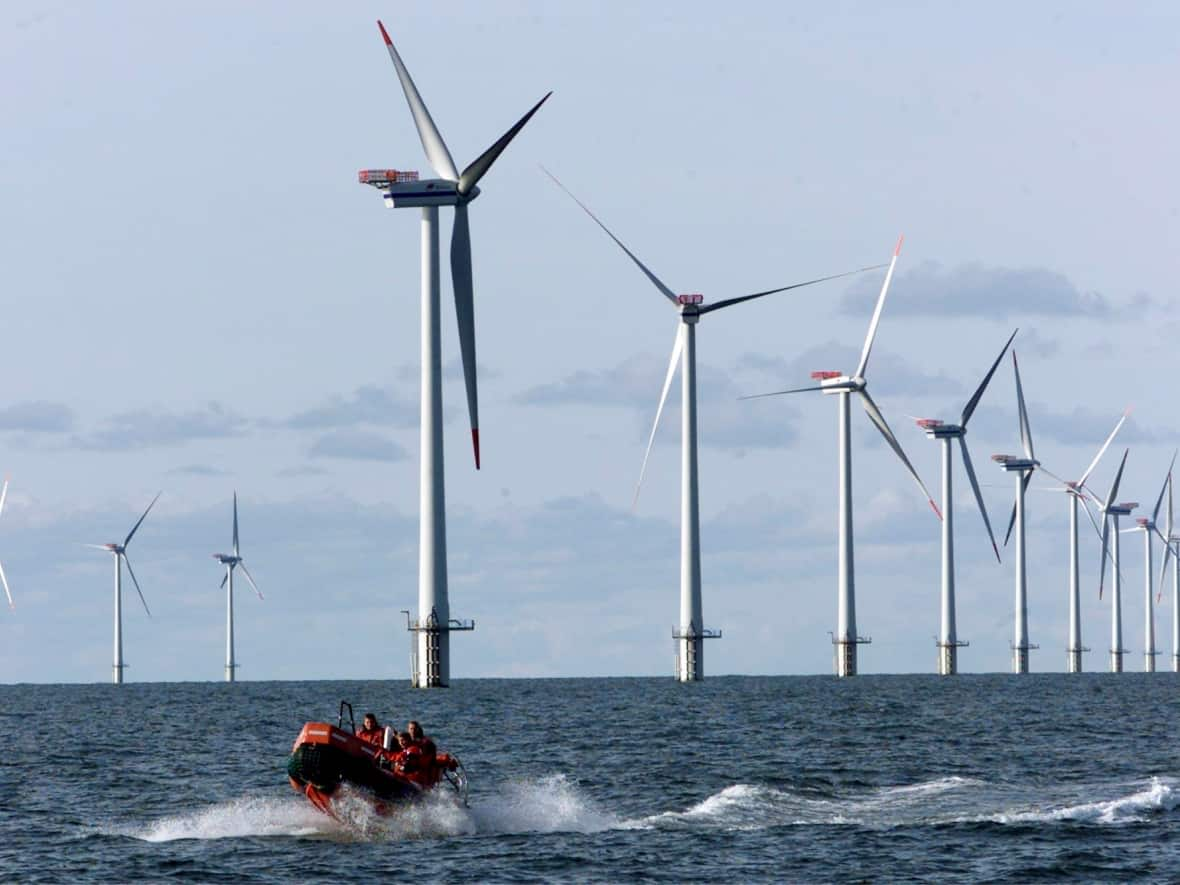Canada unveils plan for regulating offshore wind energy projects in Atlantic Canada

Canada's offshore accords with Nova Scotia and Newfoundland and Labrador are being updated to promote development of offshore wind farms, but it's not clear yet whether any compensation will be paid to fishermen displaced by wind farms.
Amendments introduced Tuesday in Ottawa by the federal government assign regulatory authority for wind power to jointly managed offshore boards — now renamed the Canada-Nova Scotia Offshore Energy Regulator and Canada-Newfoundland and Labrador Offshore Energy Regulator.
Previously the boards regulated only offshore hydrocarbon projects.
Before a call for bids is issued, authorities will identify areas suitable for development, conservation or fishing.
The legislation does not outline compensation to fishermen excluded from offshore areas because of wind farm approvals.
Federal officials said potential conflicts can be addressed in regional assessments underway in both provinces.
Nova Scotia in a hurry to get going
The legislation says the offshore regulator would promote compensation schemes developed by industry and fishing groups linked to fishing gear.
Nova Scotia is in a hurry to get going.
The Houston government has set a target of issuing five gigawatts of licences for offshore wind by 2030, with leasing starting in 2025. It is intended largely for green hydrogen production. That's almost twice the province's peak electricity demand in winter, which is 2.2 gigawatts.
The amendments will streamline seabed approvals by creating a single "submerged land" licence instead of the exploration, significant discovery and production licences used for petroleum development.
Federal and provincial ministers will issue calls for bids and approve licences.
The amendments will ensure Marine Protected Area's (MPAs) standards apply in all offshore areas governed by the Accord Acts.
Federal impact assessment process
The new federal impact assessment process will apply in offshore energy development.
For petroleum projects, future significant discovery licences will be limited to 25 years replacing the current indefinite term.
Existing significant discovery licences have been an ongoing exception and are not subject to the 25-year limit. Both offshore energy regulators will be given the authority to fulfil the Crown's duty to consult with Indigenous peoples
MORE TOP STORIES


